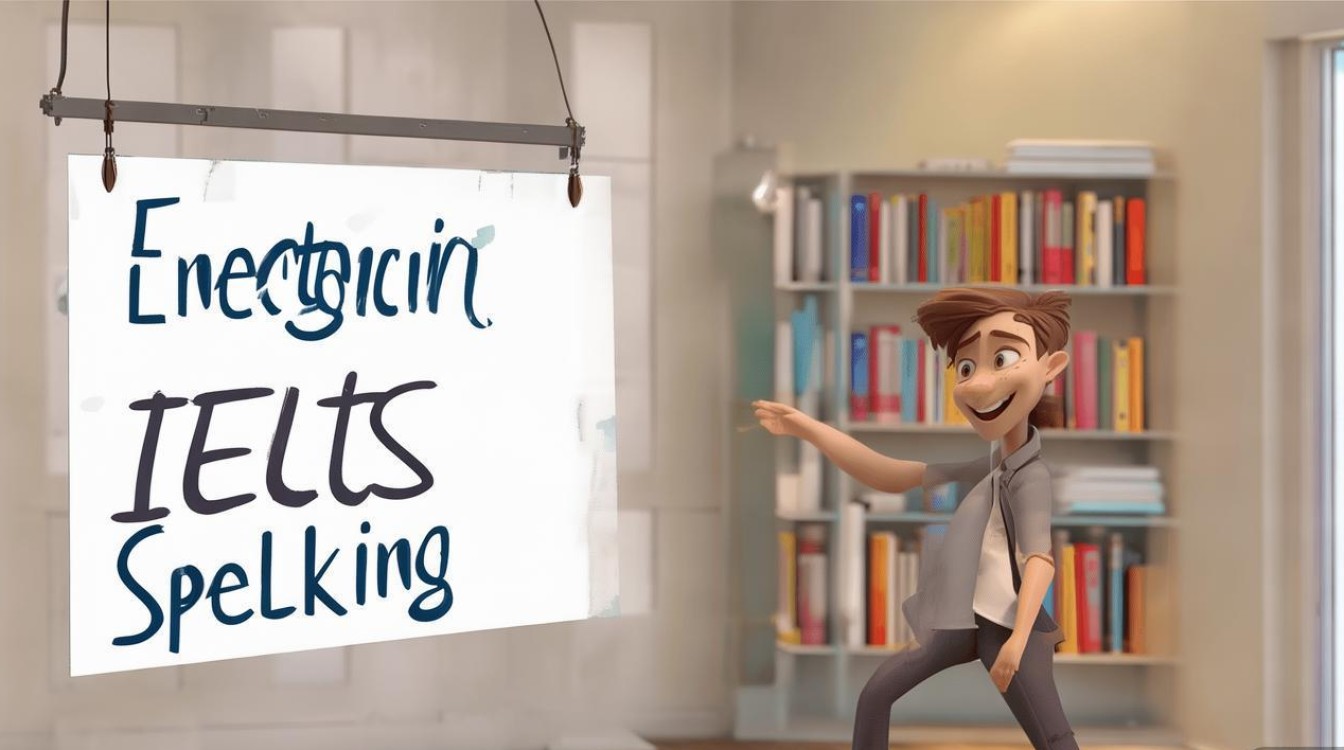在雅思口语考试中,"energetic" 是一个高频且实用的词汇,它不仅能描述人的状态,还能用于场景、活动等多方面的表达,掌握与 "energetic" 相关的表达方式,可以帮助考生更生动地回答问题,展现语言的丰富性和准确性,本文将围绕 "energetic" 的核心含义、常见搭配、场景应用及备考技巧展开,助力考生提升口语表达能力。

理解 "energetic" 的核心含义与语境
"Energetic" 形容词,意为“精力充沛的”“充满活力的”,通常用来形容人或事物具有持续的能量和活力,强调积极向上的状态,在雅思口语中,它可以用于描述人物性格、日常活动、运动场景、工作氛围等多种语境。
- 描述人:She is always energetic, even after a long day.(她总是精力充沛,即使忙碌一整天后也如此。)
- 描述活动:The concert was an energetic performance that got everyone dancing.(这场音乐会充满活力,让所有人都跟着跳了起来。)
与 "energetic" 相关的高频搭配
掌握固定搭配是灵活运用 "energetic" 的关键,以下分类整理了常见搭配,并附例句帮助理解:
形容人物状态
| 搭配 | 例句 |
|---|---|
| an energetic person | My grandfather is an energetic person who jogs every morning. |
| look/feel energetic | After a good night's sleep, I feel energetic and ready to work. |
| remain energetic | To remain energetic, she practices yoga three times a week. |
描述活动与氛围
| 搭配 | 例句 |
|---|---|
| an energetic atmosphere | The classroom had an energetic atmosphere during the group discussion. |
| an energetic start | The race began with an energetic start as all runners sprinted forward. |
| energetic music | The energetic music at the gym motivates me to exercise harder. |
表达能量来源与影响
| 搭配 | 例句 |
|---|---|
| energetic lifestyle | Adopting an energetic lifestyle includes regular exercise and a balanced diet. |
| boost energy | Drinking green tea can help boost energy levels naturally. |
雅思口语中的场景应用
在雅思口语的 Part 1、Part 2、Part 3 中,"energetic" 均可灵活融入,以下结合常见话题展开:
Part 1:人物与性格
问题:Do you consider yourself an energetic person?
回答:Yes, I’d say I’m quite energetic. I usually start my day with a 30-minute workout, which helps me stay active and focused. Even on busy days, I make time to go for a walk in the park to refresh my mind.
Part 2:描述一次经历
问题:Describe a sport or activity that makes you feel energetic.
回答:I’d like to talk about playing badminton, which is a sport that always makes me feel incredibly energetic. Every weekend, I join a local badminton club with friends. The fast-paced rallies and constant movement require a lot of energy, but afterward, I feel recharged rather than tired. The energetic atmosphere of the court, with everyone cheering and laughing, adds to the fun.
Part 3:社会话题讨论
问题:Why do some people prefer energetic activities while others like quiet ones?
回答:I think it depends on personality and lifestyle. People who enjoy energetic activities might be outgoing and need physical exertion to relieve stress, while others may prefer quiet activities to reflect and relax. For example, after a hectic workweek, some might choose hiking to release energy, while others might read a book to unwind.
备考技巧:如何自然运用 "energetic"
- 结合个人经历:用真实故事让表达更生动,例如描述一次充满活力的旅行或运动经历。
- 避免重复:可替换近义词,如 "dynamic"(充满活力的)、"vibrant"(活跃的),丰富词汇多样性。
- 拓展逻辑:用 "energetic" 引出原因、影响或对比,如 "Being energetic helps me stay productive, but I also need enough rest to maintain that balance."
相关问答 FAQs
Q1: 如何在雅思口语中区分 "energetic" 和 "dynamic" 的用法?
A1: "Energetic" 侧重强调“精力充沛、充满活力”,多用于形容人或具体活动的状态(如 an energetic child);而 "dynamic" 更侧重“动态的、富有活力的”,常用于描述事物的发展或变化(如 a dynamic economy),She has a dynamic personality that adapts well to new challenges.(她性格活泼,能很好地适应新挑战。)
Q2: 雅思口语中用 "energetic" 描述场景时,如何避免表达单一?
A2: 可结合感官细节或对比手法,描述音乐会时,不仅说 "The concert was energetic",还可补充 "The upbeat tempo and the singer’s high-energy movements made the audience jump and sing along."(欢快的节奏和歌手充满活力的动作让观众跟着跳起来、一起唱歌。)通过具体动作和反应,让场景更立体。
考生可系统掌握 "energetic" 的用法,并在口语中灵活运用,展现语言的准确性和丰富性,备考时多结合话题练习,自然能让表达更地道流畅。



